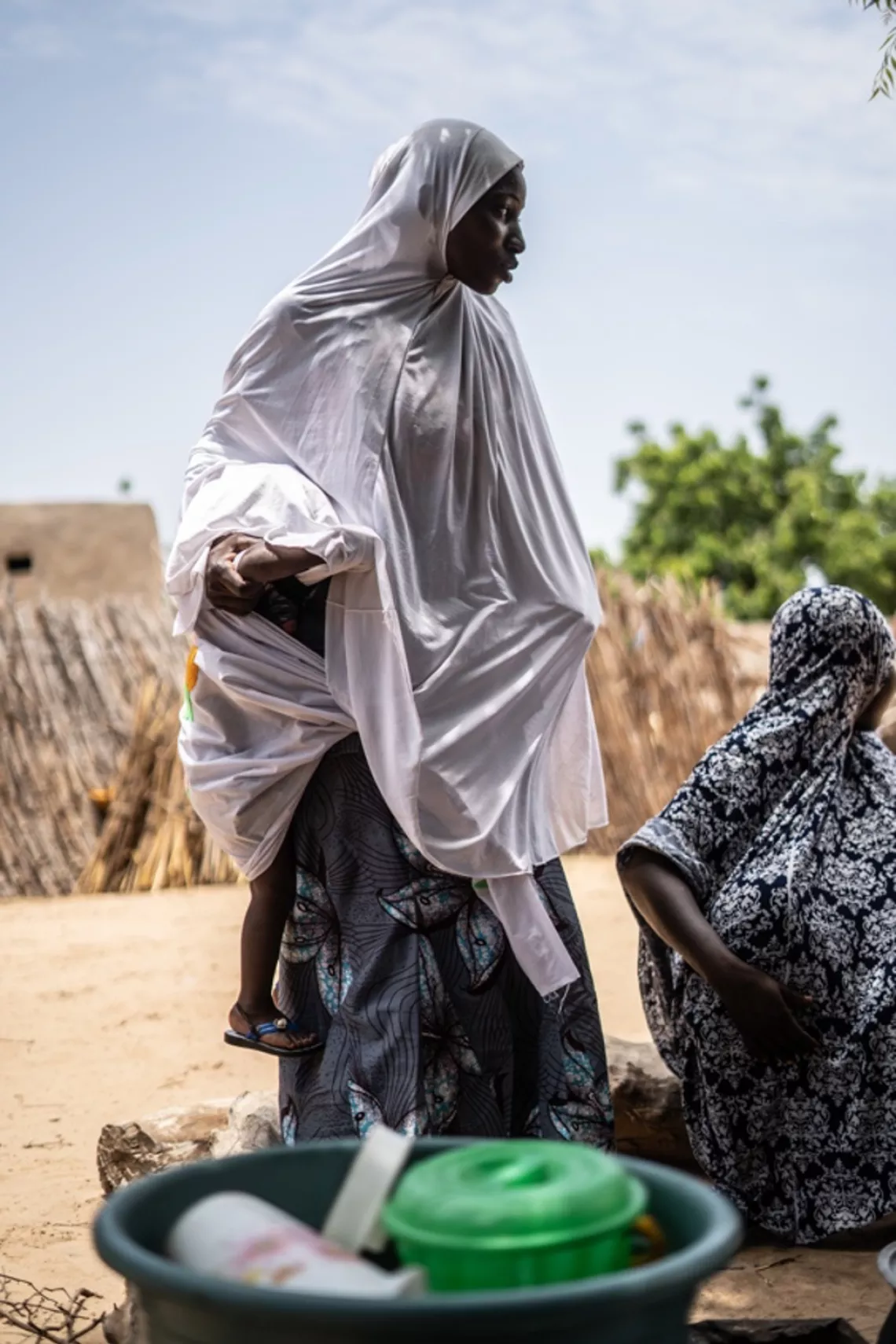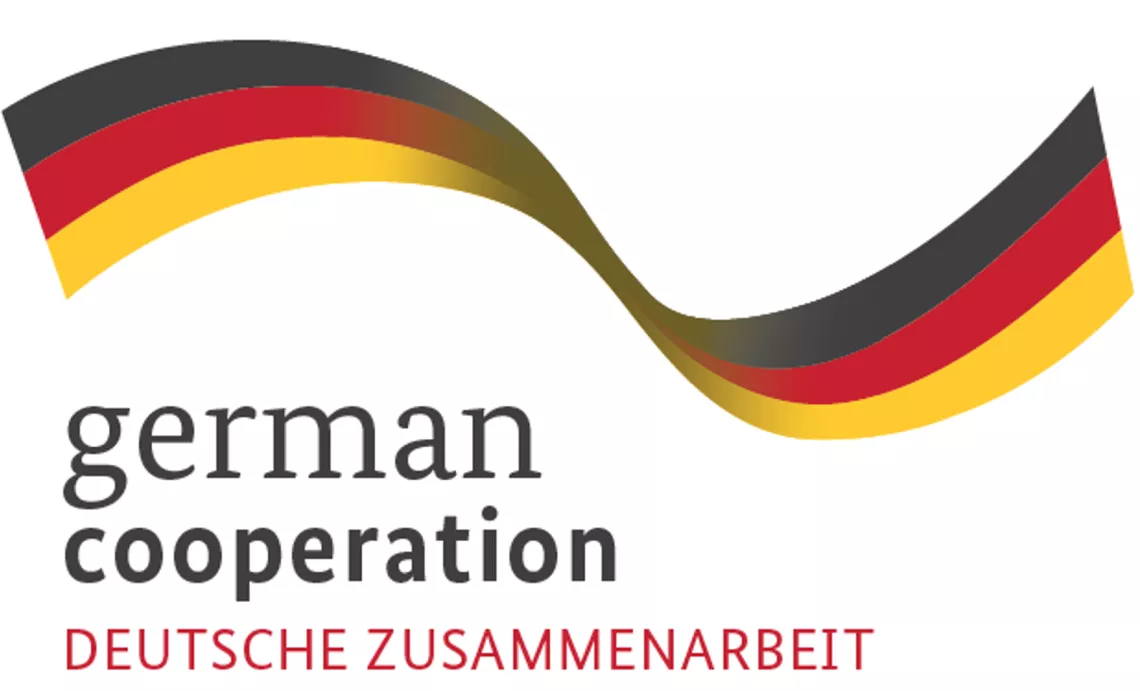Strengthening resilience in Niger
Launched in September 2019 with the generous financial support of German Cooperation (BMZ), the “Building Resilience in the Sahel” programme aims to support over three million vulnerable people in Mali, Mauritania and Niger.

- Available in:
- English
- Français
Context:
Niger increasingly faces impacts of security issues, migration flows, regional dynamics, climate change and high population growth, low levels of literacy and education, decrease of agricultural production, gender inequalities and social norms constraining its development. In addition to the size and landlocked nature of the country, those structural causes obstruct the provision of essential goods and services to the population.

Niger is a landlocked Sahelian country of 21.5 million people, with the fastest population growth rate in the world (3.9%). With regards to current trends, the population will double every twenty years.
The population of Niger is young, with 58.2% of Nigeriens being under 18. Nearly High levels of poverty affect nearly three out of five Nigeriens, in particular in rural areas where 84% per cent of the population lives. The country is amongst the least developed countries in the world, ranking 188th of 188 in the Human Development Index 2018.
Faces of resilience

The country has made significant progress in advancing children's and women's rights over the past years. Today, the child mortality rates have significantly decreased over the past decade. Substantial development in legislations, policies, strategies and national programming have been achieved over the past years. Being able to go to school is now a reality for many children in Niger. The Government demonstrated its engagement to tackle child marriage and adopted a decree for the protection of girl-child in school to guarantee access and retention until age 16. However, despite recent progress, many challenges remain particularly for the most disadvantaged children.
Partnering for resilience in Niger
Launched in September 2019 with the generous financial support of German Cooperation (BMZ), the “Building Resilience in the Sahel” programme aims to support over three million vulnerable people in Mali, Mauritania and Niger, disproportionately exposed to specific shocks and stresses, including over 1.9 million children, with high-impact, integrated interventions.
Niger has one of the fastest growing and youngest populations in the world and is affected by chronic, recurrent and sudden emergencies, which are compounded by multi-dimensional vulnerabilities, climatic shocks and population displacements.
The programme approach in based on capacity building of local authorities around decentralization efforts and integrated community-based approaches bringing together nutrition, protection, WASH, education and health services.
The programme targets more than 900,000 at-risk people, including 450,000 girls and women and a total of 538,000 children in the regions of Maradi, Zinder and Tahoua.
“A resilient person is someone who has the ability to keep moving forward despite adversities.
Instead of seeing obstacles, you see opportunity, the chance to do things differently”
Dr. Felicite Tchibindat, UNICEF Representative in Niger
In Niger, UNICEF and WFP have identified municipalities, in the regions with the highest malnutrition rates, where to jointly design and implement an integrated package of services at community level, as a model for sustainable resilience approaches, embedded into local governance systems, which contribute to key results for children.
UNICEF also worked through an innovative consortium to align vision and efforts on citizen’s voice, engagement and inclusive participation, as well as public finance for social sectors.
In total, the programme will cover: the municipalities of Mayahi, Guidan Amoumoune and Kornaka in the region of Maradi; the municipalities of Kantché, Yaouri, Kolleram and Gaffati, in the region of Zinder; and the municipalities of Bagaraoua and Tabalak in the region of Tahoua.
Beneficiaries
Girls and women: 452,000
Boys and men: 450,000
Children *(included in the total): 538,000
*Total: 902,000

Key results for children


What’s being achieved so far?
UNICEF Niger took important preparatory steps during the first phase of implementation to set up a coherent programmatic approach and managed to:
- Refine concepts and models based on community and partners consultations;
- Start the development of monitoring and evaluation tools;
- Engage with local partners to the objective of the programme and completed recruitment of key staff (programme coordinator and M&E specialist);
- Develop and sign five partnerships agreements to prepare ground for implementation of core activities;
- Took steps to develop agreements with traditional leaders to involve these critical actors in community engagement initiatives throughout the programme.
We have already seen other crises apart from COVID. In the past we have known famines, cholera outbreaks and we have lost relatives due to malaria. We are and will be resilient.

In addition, UNICEF Niger engaged in implementation of preparatory actions to deliver an integrated package for resilience, supported by multi-level systems-strengthening interventions at municipal, district, regional and national level. In particular:
- Equipment and medical supplies for carrying out community-based health outreach activities were procured and delivered. Health centers in the six health districts were provided with cold chain equipment. In addition, the organization of advanced and mobile strategies supported increased access to 24,427 vulnerable children in hard-to-reach areas;
- Nutrition and medical supplies were purchased so as to treat 29,744 children under five suffering from Severe Acute Malnutrition (SAM) in the six health districts covered by the programme and are currently being distributed to cover the needs of the second quarter (April-May-June 2020);
- Technical feasibility studies for the construction of the 32 solar or hybrid powered multi villages water supply piped systems were conducted. The bidding process for 12 of the multi-villages water supply piped systems and contracting with the private companies are planned to be finalised by end April 2020;
- The child protection system is being strengthened in its two main institutional pillars: the justice sector and the protection sector. From January to March 2020, 30 protection services were supported and 2,203 children at risk and/or victims of abuse, violence or exploitation were cared for. The nine municipalities targeted by the programme and 92 villages have set up child protection committees. 1,257 committees’ members have all been trained and equipped with referral mechanisms and case management;
- Educational kits and other education supplies were procured for over 150,000 children in the targeted municipalities in Maradi, Tahoua and Zinder regions. This will contribute to supporting the Government to improve access to quality adaptive education for all children, particularly girls, and the most vulnerable. This support is part of the package designed to accompany municipalities in their new roles, from school construction and rehabilitation, to furniture and equipment, human resources managements and school mapping;
- Three key studies have been conducted to guide capacity building activities for municipal accountability and citizens’ participation as well as social accountability at the decentralized level.
Supporting Niger’s response to Covid-19

Thanks to the BMZ funds prioritised for the COVID-19 response, UNICEF is providing crucial support to the government to implement the national COVID-19 response plan. This includes the provision of multiusers handwashing devices with soap for the healthcare facilities and case management and isolation centres of Niamey, Agadez, Zinder and Diffa and public places (mostly markets) of Niamey, and awareness on the COVID-19 and Infection Prevention Control (IPC) measures, including handwashing with soap. This also includes the provision of other IPC items (sanitizers, chlorine, PPE, sprayers, brooms) to the ministry of public health and the training of 500 health workers and 200 hygienists of Niamey on IPC, planned to start on May 4th, 2020.
COVID Diaries

Implemented by:


